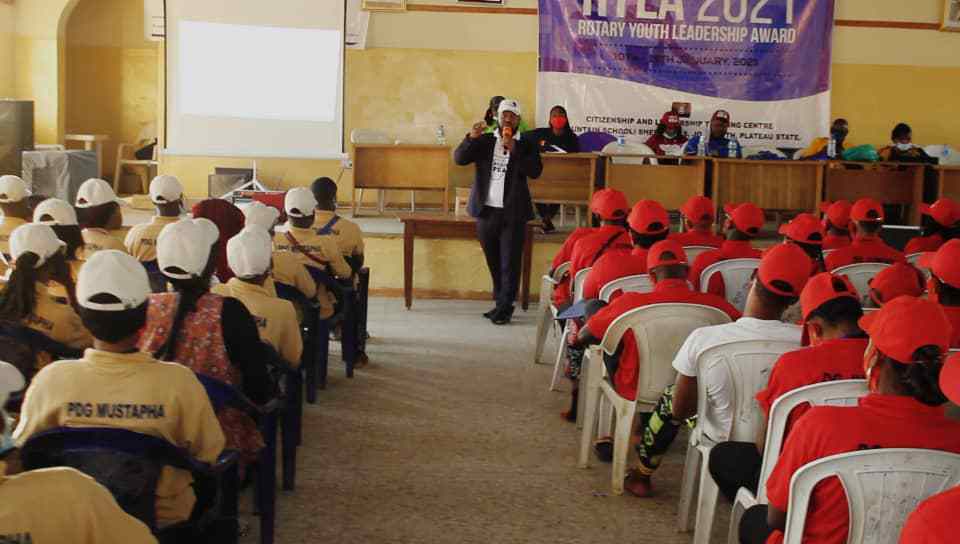Pietro Uzochukwu Macleo completed the IEP Ambassador Programme in 2020.
Name: Pietro Uzochukwu Macleo
City: Abuja, Nigeria
Professional title: Chairman, Gray Child Foundation
I came across the news of a Rotary International and IEP partnership on Rotary International portal and I became inquisitive, so I explored, and undertook the Positive Peace online course.
The course was very interesting and thought provoking as I could relate to the eight pillars of Positive Peace and the need to strengthen the pillars in Nigeria.
The post-COVID-19 socio-economic realities have fuelled a contest, conquest and competition for scarce resources, and have triggered an increase in violence, insecurity and crisis in Nigeria, including the EndSARS impasse.
Therefore, it has become necessary to engineer an indigenous, systematic approach that would help key stakeholders to maintain peacefulness and attain national sustainable development.
After identifying the Positive Peace ideology as a quasi-panacea to address Nigeria’s quagmires, the need to be an authority in the field of Positive Peace informed and spurred my passion to participate in the IEP Ambassador programme.
My background as a political scientist with a Master in International Relations exposed me to historical studies of peace and conflicts, global best practices and ideologies. I am a fellow, senior member, and member of several peacebuilding, mediation, negotiation and diplomatic institutes.
Furthermore, my experience and practise in the field of peacebuilding and conflict resolution are embedded in over 15 years of humanitarian work, and volunteer services for Rotary International, Nigeria Red Cross Society and local non-governmental organisations.
I am a proud member of Rotary International, a Paul Harris Fellow, member of the Rotary Action Group for Peace and the president (2019 – 2020) of Rotary Club of Abuja Wuse II, District 9125, Nigeria.
As the club’s president, I executed 62 projects in a calendar year and won a platinum citation from Rotary International, as well as district awards and accolades for exceptional leadership and achievements.
I have undertaken a range of local projects for the club, such as raising awareness about the Rotary Foundation, accessing Rotary grants, hepatitis sanitation and immunisation, polio, and child sexual abuse.
I have implemented youth empowerment programmes to provide training for young people, and medical outreach programmes that provide free screening and medication to remote communities.

My approach and application of Positive Peace is indeed broad and holistic; Gray Child Foundation is at the core of activating Positive Peace in Nigeria.
The West African country, which is the most populous black nation, is ranked low in the Global Peace Index and is evidently lacking in peacefulness.
Now that Rotary International and associates, have successfully eradicated polio in Nigeria, I am of the opinion that peacebuilding and conflict resolution should take the centre stage and be the next project. Let’s end conflict now!
Nigeria is a country that has already witnessed civil war, currently suffers from sustained violent extremism, religious and ethnic conflicts, and other insecurities.
Therefore, using the Rotary platform I have embarked on identifying and building the capacity of Positive Peace Ambassadors nationwide, across 37 states, for the Activation of Positive Peace in Nigeria project.
Currently, we have localised the concept of Positive Peace, and have embarked on training, certification and commissioning of Rotary Clubs in Nigeria as Positive Peace-building Rotary clubs.
Also, local Rotarians are being trained on how to streamline Rotary activities to deliberately “target and enhance” the eight pillars of Positive Peace in any community of interest, using the Rotary areas of focus and avenues of service.
This new method of Rotary engagement is anchored in the Theory of Change, and would not only strengthen the beneficial community’s Pillars of Positive Peace, but would further enhance the attainment of the United Nations’ Sustainable Development Goal 17.
The goal is to identify Positive Peace Ambassadors nationwide and provide extensive training on IEP concepts, and the Activation of Positive Peace in Nigeria project.
In January 2021, we went further and trained over 300 youths at the Rotary Young Leadership Awards (RYLA) and freely distributed the Rotaract Peacebuilder Handbook.
We currently have a platform of over 100 Rotaractors (young Nigerians) who are being trained and informed on Positive Peace initiatives and methods of activating Positive Peace in their communities.
Already, the young adults that were trained at RYLA 2021 are doing us proud, as many have kick-started positive peacebuilding activities of their own in schools, campuses and communities.
The effects and progress of peacebuilding are often intangible, but what I can say is that there is high enthusiasm amongst Rotarians and Nigerians about the prospects, effects and outcome of the Activation of Positive Peace in Nigeria initiative.
Glimpses of our programmes are surfacing in the public domain, and it is generating interest, and gathering momentum.